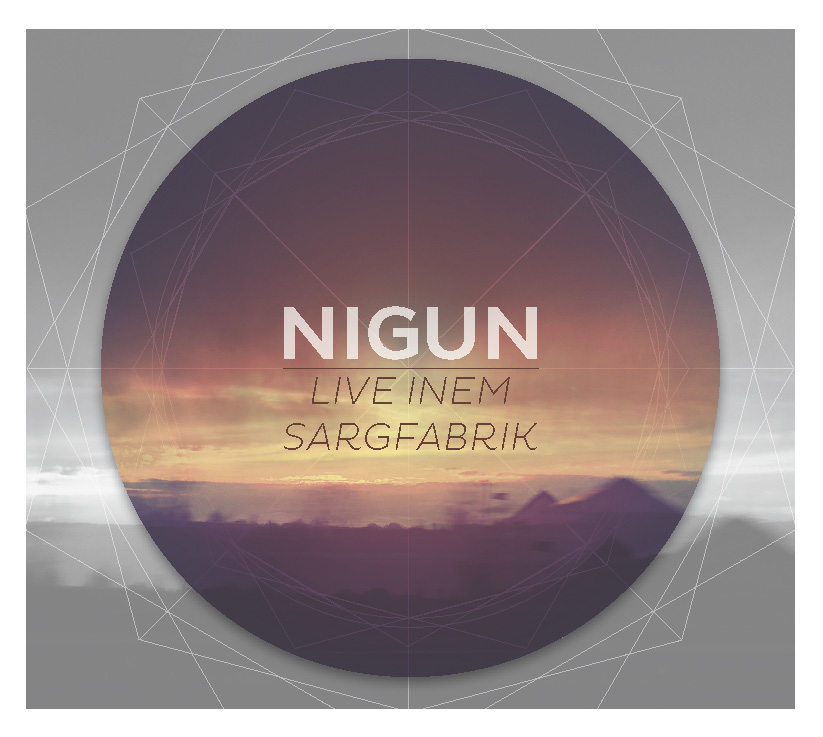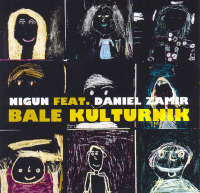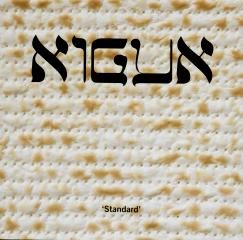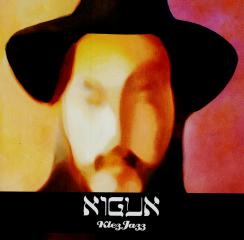 |
Nigun
Hungary
|
|
|
|
|
|
|
| |
|
Live Inem Sargfabrik
|
jazz ,
world music |
|
 András Gábor Párniczky - guitar
András Gábor Párniczky - guitar
Péter Bede - alt sax
Péter Ajtai - double bass
István Baló – drums
| 1. | Yiddishe Honga (8:17) | | 2. | Medley: Der Neier Doina / 7-16 (16:49) | | 3. | Visszatérés (6:52) | | 4. | A kántor szombaton (10:20) | | 5. | Jó testvérek (7:17) | | 6. | Bulgar (7:02) |
|
|
Comments
(0 messages) |
|
FA 387-2 |
CD |
2016 |
0.00
€ |
 |
|
|
|
|
|
|
|
|
|
|
| |
|
Bale Kulturnik
|
jazz ,
world music |
|
 The third album of the group Bale Kulturnik featuring the Israeli sax player Daniel Zamir. The term Bale Kulturnik (Yiddish) means if one returns to his culture and transmits it others.
The third album of the group Bale Kulturnik featuring the Israeli sax player Daniel Zamir. The term Bale Kulturnik (Yiddish) means if one returns to his culture and transmits it others.
"The Music of NIGUN is professional, ., it isn't ethno- or world music, one can't range it neither to klezmer jazz, which has formed in the near past. NIGUN kneads the original tunes and is so with a strong factor of our improvised music life." - Péter Szigeti, Gramofon Magazine
András Párniczky – guitar
Kirstóf Bacsó – alto and soprano sax
József Barcza Horváth – double bass
István Baló – drums
Daniel Zamir – soprano sax
| 1. | Poem 26 | | 2. | Wallenstein’s Niggun | | 3. | Ma Omrot Einaich | | 4. | Odessa Bulgarish | | 5. | Kavanna Nigun | | 6. | Kovmah Freilach | | 7. | Quando El Rey Nomrod |
|
|
Comments
(0 messages) |
|
ERCD 090 |
CD |
2006 |
0.00
€ |
 |
|
|
|
|
|
|
|
|
|
|
| |
|
Standard
|
world music |
|
 In the 19th Century Jewish musicians played two or three dance pieces often in a set order, without interruption at weddings and other fests. They called these ’medleys’ standard among themselves. The first part of the standard is the Doina, a rubato, semi-improvised ballad, wich was originally a Transylvanian sheperd tune and wich – at the same time – is the intro of the Hora that follows. The Hora is a medium ¾ time dance, were normally a break substitutes the mid quarter. The last piece of the set is a fast and ecstatic 4/4 time dance, the Bulgar (Freylach). These three kinds of dance pieces with different tempo constitute the basis of the instrumental Klezmer music. Nigun’s standard revievs this music tradition. The traditional variations of the pieces we play come from different regions so originally these there tunes could not be in the same repertoire.
In the 19th Century Jewish musicians played two or three dance pieces often in a set order, without interruption at weddings and other fests. They called these ’medleys’ standard among themselves. The first part of the standard is the Doina, a rubato, semi-improvised ballad, wich was originally a Transylvanian sheperd tune and wich – at the same time – is the intro of the Hora that follows. The Hora is a medium ¾ time dance, were normally a break substitutes the mid quarter. The last piece of the set is a fast and ecstatic 4/4 time dance, the Bulgar (Freylach). These three kinds of dance pieces with different tempo constitute the basis of the instrumental Klezmer music. Nigun’s standard revievs this music tradition. The traditional variations of the pieces we play come from different regions so originally these there tunes could not be in the same repertoire.
András Párniczky - guitar
Kristóf Bacsó - alto, sopran sax
Péter Nagy - bass
Csaba Gavallér - drums, dumbuk
| 1. | Dror Yikra | | 2. | Máramarosszigeti tánc / Dance from Máramaros | | 3. | Szászrégeni Zsidó Tánc / Jewish dance from Szászrégen | | 4. | Chasn Ojf Schabess | | 5. | Re'ach Tapuach | | 6. | Szól a kakas már | | 7. | Der Gasn Nign | | 8. | Odessa Bulgaris | | 9. | Hasar Hamemuneh |
|
|
Comments
(0 messages) |
|
ERCD 067 |
CD |
2004 |
0.00
€ |
 |
|
|
|
|
|
|
|
|
|
|
| |
|
KlezJazz
|
world music |
|
 The first album of the band (Klezz Jazz) released in 2003. The lovers of folk, jazz and world music will all enjoy the nine songs this album contains. The members of the band, who don’t go only in for the same music but they are also friends, are mixing Jewish music (klezmer, sephard, folk-sacral) with jazz and free-improvisative elements.
The first album of the band (Klezz Jazz) released in 2003. The lovers of folk, jazz and world music will all enjoy the nine songs this album contains. The members of the band, who don’t go only in for the same music but they are also friends, are mixing Jewish music (klezmer, sephard, folk-sacral) with jazz and free-improvisative elements.
András Párniczky - guitar
János Vázsonyi - saxophone
Dániel Váczi - saxophone
Pétar Nagy - double bass
Csaba Gavallér - drum
| 1. | Skutchna | | 2. | Chosn Kalle Mazzeltov | | 3. | Tumbalalajka | | 4. | Hochmec | | 5. | Majn Jingele | | 6. | La' Avoda Velamelacha | | 7. | Shnirele - Perele | | 8. | Chasn ojf Schabess | | 9. | Fun Tashlikh |
|
|
Comments
(0 messages) |
|
ERCD 059 |
CD |
2003 |
0.00
€ |
 |
|
|
|
|
|
|
|
|
